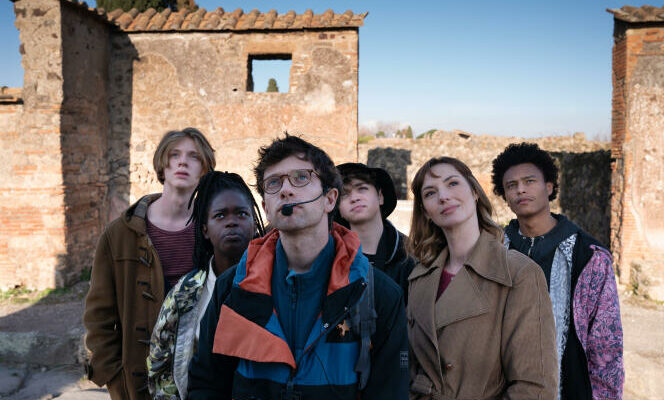THE “WORLD’S” OPINION – NOT TO BE MISSED
Delphine (Louise Bourgoin) is a Latin teacher who has resigned from a high school in Angers. She has long bought social peace with the handful of students who chose her option: they remain calm and occupy themselves in their corner during class time, in exchange for which she generously distributes 19/20s to each control. But the deception is almost uncovered when the principal (Noémie Lvovsky) orders the teacher to register her class for an excellence competition in Naples. The survival of the Latin option is at stake: a dead language, little appreciated by students, and which risks disappearing the following year if nothing is done.
It is therefore less out of passion than out of interest that Delphine goes to Naples with her students, flanked by a somewhat cumbersome companion: Rodolphe (Xavier Lacaille), the principal’s nephew, who seems to live for his Latin thesis. Head to a Neapolitan palace that looks like Hogwarts where the best of Latinists await them, pumped up and ready to do anything to snatch victory. Non-negotiable objective: leave first.
First feature film by Emilie Noblet, a trained cinematographer who has served as director on several series, Again is a bright, funny film, which has the great merit of taking school fiction off its hinges. The trip from Angers to Naples has the value of a program: it is the genre itself which extricates itself from its natural habitat – gray establishments – to go and plant itself elsewhere, in a heavenly setting.
Funny and poetic situations
The film brilliantly frees itself from everything that one is entitled to usually expect from a school film, taking no account of reality or sociology: the students do not constitute a “panel” of French youth , the story does not exploit the teacher-student relationship in favor of an undeniable generational conflict. Nor will we find the usual function of the “savior” teacher who would come to convert a youth in perdition to the virtues of a dead language. Neither restorative fiction, nor exemplary story about the teaching profession.
Because the most lost is Delphine, who accumulates many defects: an indestructible liar, lazy what’s more, she has no other horizons than that of her selfishness and her good pleasure. Like a princess out of a Lubitsch film, she is suddenly very busy in Naples: she succumbs to the crazy charm of a dark Italian academic specializing in Virgil, rejects the advances of Rodolphe and must urgently find a not very orthodox way to make his team win with broken arms.
You have 40.85% of this article left to read. The rest is reserved for subscribers.
